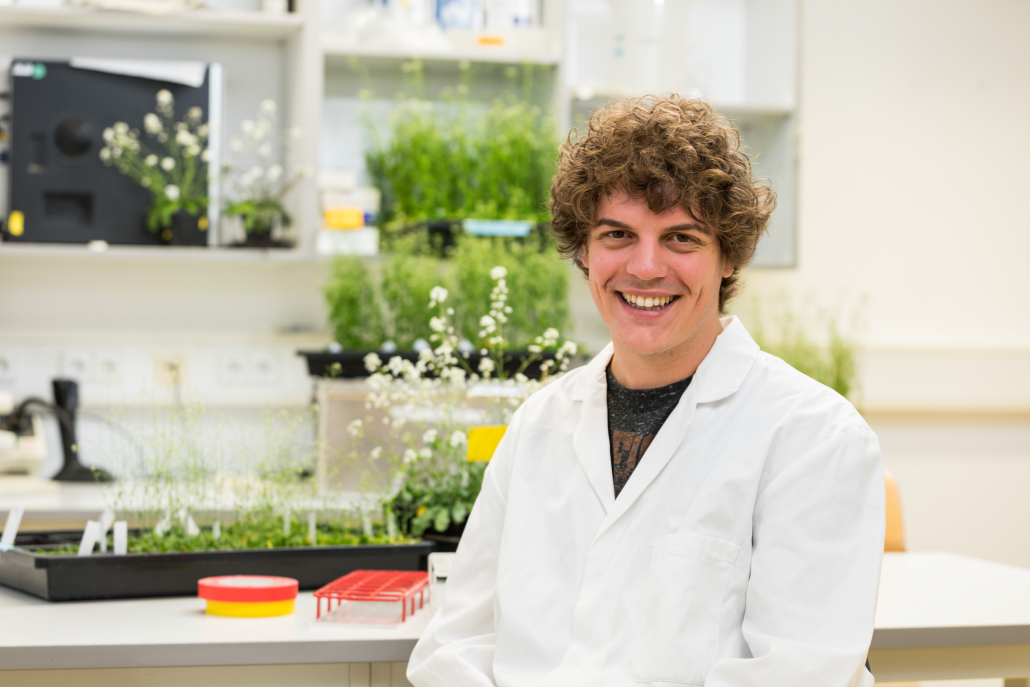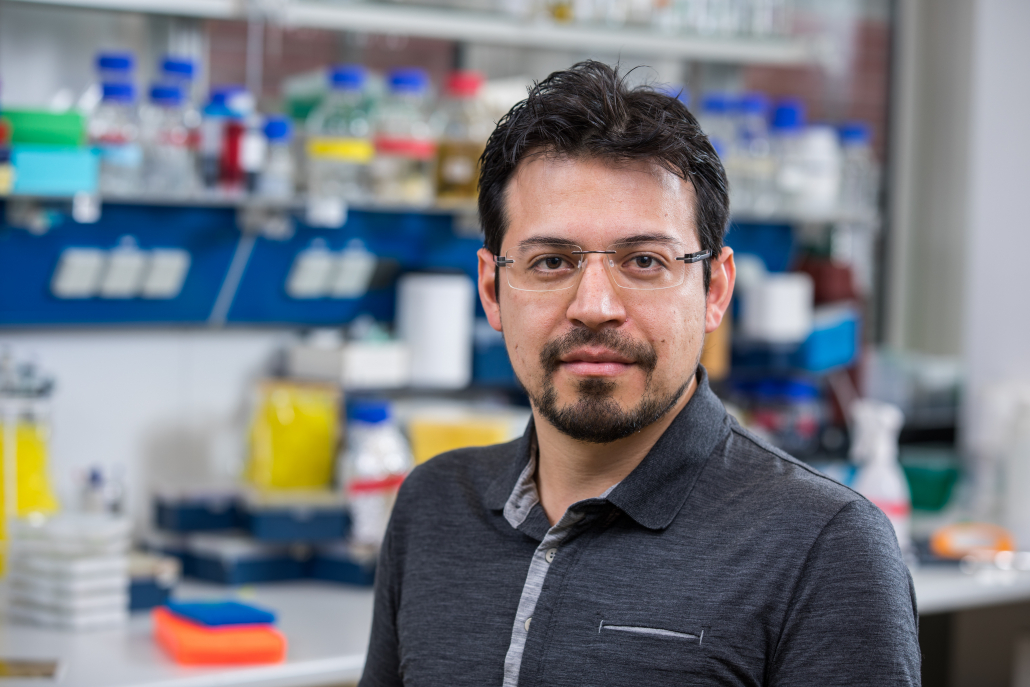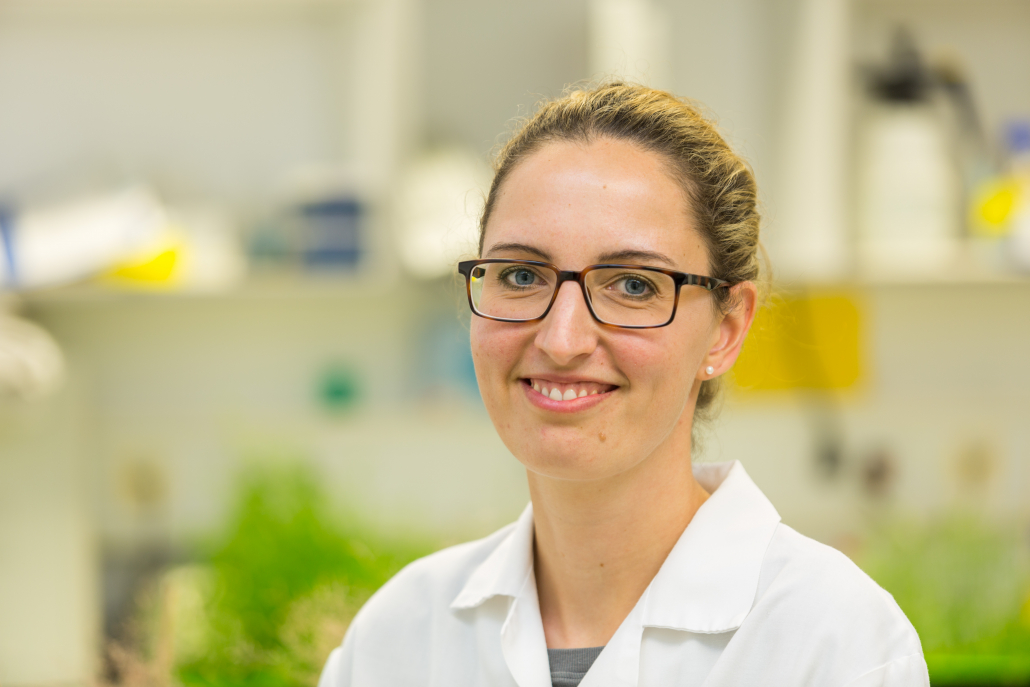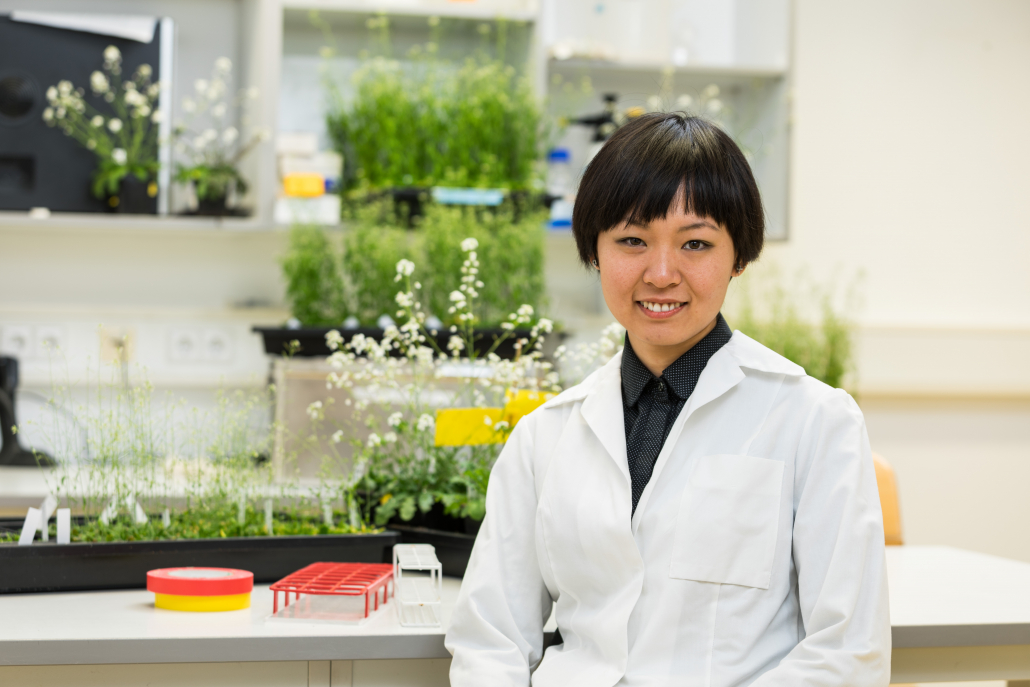Phenotype-driven approaches for the identification of natural variants with potential roles in adaptation continue to be an important part of our research.
Much of our work focuses on the plant Arabidopsis thaliana, which can be found in very different habitats, and the species accordingly varies in many morphological, physiological and life history traits. Several traits are likely to be important for local adaptation, such as the onset of flowering. This is less obvious for others, but their investigation can nevertheless lead to interesting biology.
In addition to genotype x environment (GxE) interactions, we are interested in genotype x gene (GxG) interactions, that is, how the expression of mutant phenotypes is modulated by genetic background. The experimental strategy employs CRISPR/Cas9 genome editing to knock out the same genes in different natural accessions. These efforts are an important step toward exploiting naturally occurring genetic variation for a systems-level understanding of biological processes.
A particularly fascinating case of evolution that can be observed in real time is that of herbicide resistance in agricultural weeds. Although many of the responsible genes are well known, there are still many questions regarding the frequency with which herbicide resistance arises, how it spreads, and how herbicide resistance mutations interact with other variants that ensure the success of weeds in agricultural environments.
Natural variation in fitness trade offs
Systematic analysis of
gene-by-genotype (GxG) interactions
Evolution of
herbicide resistance
People
Adrian Contreras
Doctoral Researcher
Epigenomics (sRNA/DNA methylation). Population genomics of transposable elements
Anette Habring
Research Technician
Andrea Movilli
Doctoral Researcher
Epigenetics. Transposable Elements. Long-read sequencing
Catarina Lino
Intern
Detlef Weigel
Director
I started out as a developmental biologist, but over the past two decades years, my lab has come to focus more and more on questions of evolution. We investigate these both from a genomic perspective and starting from phenotypes, primarily, but not exclusively in Arabidopsis thaliana.
Fernando Rabanal
Postdoctoral Researcher
Ribosome heterogeneity. Evolution of regulation of ribosomal RNA genes. Population genomics of herbicide resistance
Frank Weiss
Technical Service
Ribosome heterogeneity. Evolution of regulation of ribosomal RNA genes. Population genomics of herbicide resistance
Katrin Fritschi
Research Technician
DNA sequencing and associated challenges
Li He
Postdoctoral Researcher
Monika Demar
Research Technician
Patience Chatukuta
Postdoctoral Researcher
Plant protoplast transformation. Plant regeneration. Plant genome editing
Shanshan Wang
Postdoctoral Researcher
Plant immunity. Single cell sequencing
Ulrich Lutz
Postdoctoral Researcher
GxG interactions. Flowering time variation. Herbicide resistance.
Wei Yuan
Postdoctoral Researcher
RNA-seq. Ecological Genomics. Complex trait.
Collaboration Partners
University of British Columbia, Canada
University of Maryland, USA
University of Illinois, USA
Selected References
Exposito-Alonso, M. A., 500 Genomes Field Experiment Team, Burbano, H. A., Bossdorf, O., Nielsen, R., and Weigel, D. (2019) Natural selection on the Arabidopsis thaliana genome in present and future climates. Nature 573, 126-129.
Kreiner, J., Latorre, S. M., Burbano, H. A., Stinchcombe, J. R., Otto, S. P., Weigel, D., and Wright, S. I. (2022) Rapid weed adaptation and range expansion in response to agriculture over the last two centuries. Science, published online 9 December 2022.
Vasseur, F., Fouqueau, L., de Vienne, D., Nidelet, T., Violle, C., and Weigel, D. (2019) Non-linear phenotypic variation uncovers the emergence of heterosis in Arabidopsis thaliana. PLoS Biol. 17, e3000214.
Srikant, T., Yuan, W., Berendzen, K. W., Contreras Garrido, A., Drost, H.-G., Schwab, R., and Weigel, D. (2023) Canalization of genome-wide transcriptional activity in Arabidopsis thaliana accessions by MET1-dependent CG methylation. Genome Biol. In press.









